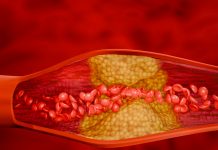Dr Sung Min Son and Prof David Rubinsztein (UK DRI at Cambridge) have identified a key enzyme driving forms of Parkinson’s disease, highlighting a promising new target for treatment and offering fresh hope to millions of patients worldwide
A key pathological hallmark of Parkinson’s disease is the accumulation of Lewy bodies—abnormal aggregates of the protein alpha-synuclein—within neurons. The exact cause of neuronal degeneration remains unknown, but it is believed to involve a combination of genetic mutations, environmental exposures, and age-related cellular changes.
The body naturally removes toxic materials through autophagy, in which cells break down and recycle unwanted components. However, autophagy does not function appropriately in Parkinson’s disease, meaning the cells cannot eliminate alpha-synuclein.
Reversing many changes caused by Parkinson’s disease
The new study revealed a pathway involving an enzyme known as ACLY, which they found was hyperactivated in Parkinson’s disease. The team examined human cells and ‘mini-brains’ called organoids, which contained abnormal alpha-synuclein.
Using these cells, zebrafish, and mouse models, the researchers found that abnormal alpha-synuclein overactivates ACLY, which causes the nerve cells to disrupt autophagy, leading to the accumulation of alpha-synuclein and the kind of cellular stress and damage seen in Parkinson’s.
“Our research shows that ACLY acts like a switch, triggering a series of changes inside brain cells that we believe are central to Parkinson’s progression. A key finding is that when we blocked ACLY, we were able to reverse many of these changes, not just in human brain cells, but also in zebrafish and mouse models,” commented Prof David Rubinsztein, Group Leader.
This important discovery points toward the possibility of not just slowing, but potentially halting or even reversing, the damaging processes associated with Parkinson’s disease progression, a major step forward in neurodegenerative disease research.
Offering new hope for potential targeted treatment
The study, funded by the UK DRI, Parkinson’s UK, Rosetrees and the John Black Charitable Foundation, and published in the journal Neuron, showed that blocking the function of ACLY restored normal autophagy and reduced levels of toxic alpha-synuclein in cells, mini-brains, zebrafish, and mouse models of Parkinson’s disease. By using drugs to block the function of ACLY, researchers were able to reduce the toxicity of alpha-synuclein in brain cells and mini-brains.
In zebrafish and mice genetically modified to carry a human Parkinson’s-linked mutation in the alpha-synuclein gene, blocking ACLY boosted autophagy, helping to clear alpha-synuclein. This, in turn, reduced disease-related effects in the animal models. The findings suggest a potential disease-modifying strategy that targets the root cause of cell death in Parkinson’s disease.
Multiple compounds can block or inhibit ACLY, including hydroxycitrate, a popular weight-loss supplement. Other compounds have also been evaluated as potential anti-cancer therapeutics; however, these compounds do not cross the blood-brain barrier. Therefore, the next step of this research is to develop an ACLY inhibitor that can pass into the brain from the blood.
Lead author Prof David Rubinsztein, Group Leader at the UK Dementia Research Institute at the University of Cambridge, said: “Our research shows that ACLY acts like a switch, triggering a series of changes inside brain cells, that we believe are central to Parkinson’s progression. A key finding is that when we blocked ACLY, we were able to reverse many of these changes, not just in human brain cells, but also in zebrafish and mouse models.
“This suggests that the problems caused by alpha-synuclein in Parkinson’s aren’t just about the protein itself but how it disrupts other processes within cells. Our research indicates that ACLY is a compelling drug target for Parkinson’s, laying the foundation for future therapies aimed at halting or reversing the course of the condition.”








